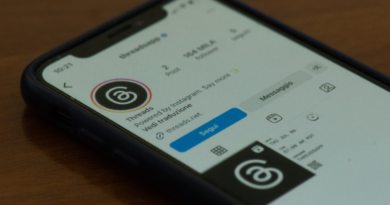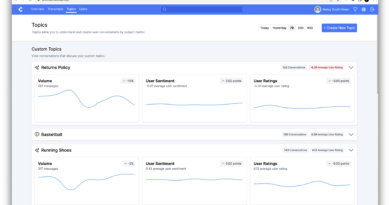Judge to deliberate competition harm vs Google’s gains in search antitrust trial
The U.S. Justice Department wrapped the evidentiary phase of its antitrust trial against Google a couple of weeks ago, with closing arguments set for May 2024. At its core is a question: Can a giant of industry engage in anticompetitive business practices legally, as long as those practices create a better product for that business and its own customers?
Judge Amit Mehta reportedly says he has “no idea” how he will rule in this landmark case that could decide not just the future of the internet, but also the future of antitrust law. And little wonder the judge is stumped.
“Antitrust law is very unsettled about what courts should do when they find both harm and benefit,” Doug Melamed, a law scholar at Stanford University specializing in antitrust law, told TechCrunch. “Courts usually avoid the issue by finding one or the other, but not both.”
On one side of this case, it’s clear that Google has a monopoly in the search market, which it won in part by sharing ad revenue with smartphone makers in exchange for being the default search engine on Apple and Android devices. Since 2015, Google’s market share has hovered between 83% and 91%, according to Statista. Google’s default agreements have kneecapped the ability of competitors, or would-be competitors, to challenge that monopoly.
On the other hand, those agreements also benefited Google, and by extension its consumers and advertisers, by generating data over time that improved its search products.
“So you might have a finding that the default agreements both harm competition and create benefits — legitimate, cognizable benefits,” said Melamed, noting that the court now has to assess the lawfulness of the defaults when they both weaken competitors (thereby preserving Google’s monopoly) and generate legitimate efficiency benefits.
The case law supports a variety of “imperfect paths to the bottom line,” said Melamed.
For example, the judge might find in favor of Google if he decides the benefits outweighed the harms. Or he could determine that, actually, no company should have as much market share as Google and it’s time to break it up.
But before we dig into potential outcomes, a bit of a refresh:
What each side is arguing
The U.S. first brought its case against Google in 2020, claiming the company is “unlawfully maintaining monopolies in the markets for general search services, search advertising and general search text advertising in the United States.” The suit seeks to both restrain Google and seek remedies for the effects of its conduct, like fines, enforced divestment, making Google share data or change its business practices and more.
To argue its case, the government pointed to the amount Google has paid to be the default search engine across platforms — $26 billion in 2021 alone — and the sweetheart deal Google has with Apple. During that same year, about $18 billion went to Apple to make Google the default search engine on the Safari web browser. Trial testimony also revealed that Google pays Apple 36% of the revenue it earns from search advertising made through Safari.
During the trial, the CEOs of Microsoft and DuckDuckGo testified that their search engines would have been far more successful, even competitive with Google, had they been able to make similar deals with Apple. Microsoft CEO Satya Nadella even said he was willing to spend $15 billion per year to get Bing into Apple’s default search, per The Information.
Google’s default status extends to Android devices, as well, many of which come pre-loaded with a bundle of 11 Google apps, including Chrome, Search and Play. The company has revenue share agreements with smartphone makers and wireless carriers to set Google search and Chrome web browser as defaults.
The government says Google’s actions have harmed its rivals by diminishing their ability to compete against its monopoly. If competitors can’t access all the same data Google has due to the latter’s default agreements, they can’t improve their products enough to attract and retain customers.
Google argues that the default agreements are simply good business. All of that data has allowed it to collect incremental data to improve its product — a fact which is largely indisputable — which benefits advertisers and consumers using search.
The DOJ’s closing arguments might try to prove that the harms to competition outweighed the benefits to Google. In other words, at what point is Google paying big bucks to make a better product, and at what point is it just building a wall around the playing field to keep out competitors?
How this trial could go
The court could find in favor for Google on the grounds that the default app status that Google purchased generated product benefits for the company, says Melamed, noting that this could be a weak rationale depending on the evidence in the record.
For example, the court could compare the price Google paid for its default status with the value of the data gained through the default to Google. That information isn’t all part of the public record, but the judge likely has it as part of evidence. Some experts believe it’s possible that Google got declining marginal returns from its data, meaning that the incremental data Google gained from its defaults are worth less to the company than it would be to its rivals. If evidence supports this, it would mean Google crossed over the threshold of paying to do good business, into paying to handicap competition. Therefore, the harm would exceed the benefits, making the defaults illegal.
Melamed also pointed to a potential outcome that relies on “exclusive dealing law precedent,” which basically says, yes these kinds of defaults hurt rivals, and yes they also provide benefits, but Google is a monopoly, and there’s just a limit to how much power it can have. In this outcome, the court might, for example, restrict Google from buying default status on more than a certain percentage of devices.
Finally, the court could agree with Assistant Attorney General Jonathan Kanter, who is overseeing litigation in this case, that the law is here to ban conduct that both handicaps rivals and monopolizes a market, so therefore the defaults are illegal. Whether there were benefits to Google’s business and consumers is irrelevant.
“Market power is the ability to profitably charge a price above the competitive price,” said Melamed. “You have market power if you can raise your prices and your consumers don’t respond by going to the competition. The significance of that is if you can profitably do so, it can be presumed that you will do so.”
Zooming out
This case matters because enforcers want to show that antitrust law is still relevant and that the DOJ can check the power of mighty Big Tech. The outcome could affect other cases that Google is involved in.
Google recently settled a separate antitrust lawsuit with dating site Match Group. Google also kicked off another trial with Fortnite maker Epic Games. The latter hopes to prove that Google engages in anticompetitive behavior with regard to its Android app store, Google Play, and its commission structure.
In January, the DOJ filed a separate suit against Google, alleging the search giant has a monopoly on advertising technology, as well.
Google’s case could also have an impact on a number of other antitrust cases in the works against Big Tech. The FTC sued Amazon in September, claiming anticompetitive and unfair strategies to illegally maintain its monopoly power. The DOJ has been investigating Apple for years over the company’s policy for third-party apps on its devices and whether it is unfairly favoring its own products. And there is an ongoing case between the FTC and Facebook, wherein the agency is calling on Facebook to sell Instagram and WhatsApp.




